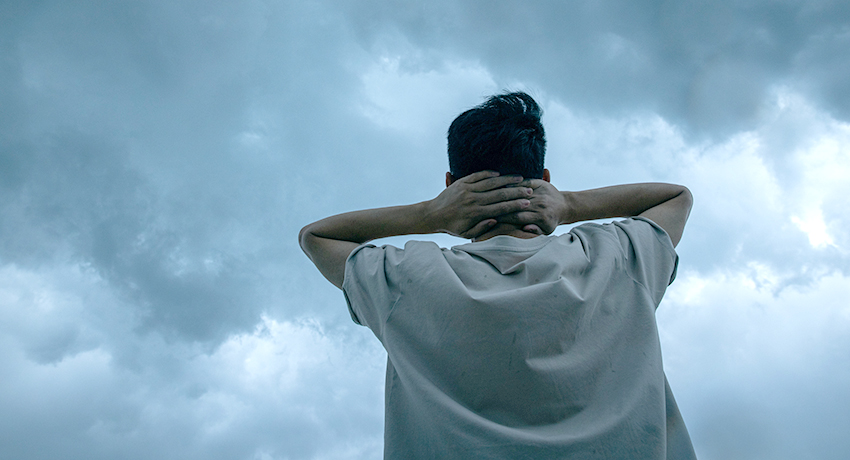From severe thunderstorms, hailstorms, and flooding to tornadoes, a rare derecho, and an early-season hurricane, Greater Houston has felt the nasty side of Mother Nature with back-to-back instances of extreme weather in recent months.

“Many people are feeling drained and exhausted right now from difficult weather,” said Andrea N. Taylor, PhD, a psychologist with UT Physicians.
These storms may only last a few hours but can impact our physical environment and long-term mental health. Losing the stability of electricity, cell service, water, and housing can drain us emotionally. The sometimes violent and unpredictable nature of wind, rain, and lighting can make us feel vulnerable and generate uncertainty.
Severe weather trauma
“Situations like these can lead to anxiety, worry, or sometimes panic,” said Taylor, an assistant professor in the Department of Psychiatry and Behavioral Sciences with McGovern Medical School at UTHealth Houston.
When these feelings persist and grow, acute stress disorder can develop, says Taylor, who treats patients at the UT Physicians Psychiatry Outpatient Clinic – BBSB.
Taylor began treating clients for severe weather trauma after Hurricane Harvey in 2017.
“When you’re in your house and see the flood waters coming in and feel unsafe or panicked, that can be traumatic,” said Taylor.
Symptoms of weather-related acute stress disorder
- Difficulty sleeping
- Nightmares associated with the weather event
- Loss of concentration
- Increased irritability
- Hypervigilant about weather reports
- Intrusive recollection – having thoughts about the weather event when you don’t want to
- Extreme responses to low-key weather conditions
- New negative thinking process
It’s not uncommon to have these symptoms after extreme weather. For most people, the feelings will subside within days or weeks, but for some, these weather trauma symptoms could continue and develop into post-traumatic stress disorder.
Seeking help
Talking about the way you feel is the first step toward easing symptoms.
“It’s important that you don’t keep these feelings to yourself. Talk to your family, friends, and people who provide social support,” said Taylor.
Finding professional help is the second step if your symptoms escalate and become distressing or begin to interfere with your daily life.
Taylor said that if your symptoms from a traumatic weather situation are still being felt more than a month afterward, seek professional help because you may have post-traumatic stress disorder.
Tips to relieve weather anxiety
Take action
- Prepare for extreme weather by taking the necessary precautions.
- Create a family plan for specific situations, such as a tornado, house fire, or flooding.
- Create a plan for pet accommodations.
Stay calm
- Reframe your mindset to focus on what you can and can’t control.
- Remain confident in your preparations.
- Focus on safety.
Coping after the storm
After destruction or disruption, Taylor encourages you to remind yourself that you can cope even when it is hard. Also, look for the silver lining: neighbors coming together, strangers helping strangers, and businesses staying open to offer power, resources, and shelter.
“Even if you’re going through a weather situation alone, it’s likely there will be a community of people to help you afterward, even strangers,” said Taylor. “Take comfort in that support.”
Feeling drained, apprehensive, and frustrated is normal. Most people will experience these emotions after severe weather.
“I encourage people to give themselves some space and grace to have these emotions,” said Taylor. “For the majority of people, those feelings will dissipate.”
Adjust your recovery expectations
“We all want things to return to normal as quickly as possible,” said Taylor. “If we set up that unrealistic expectation, we create more anxiety for ourselves.”
Helping kids through severe weather
When discussing an anticipated weather situation with children, remain calm and neutral. Don’t lie to children or pretend it isn’t happening, but be careful not to exaggerate. Let children know that you will get through it together.



